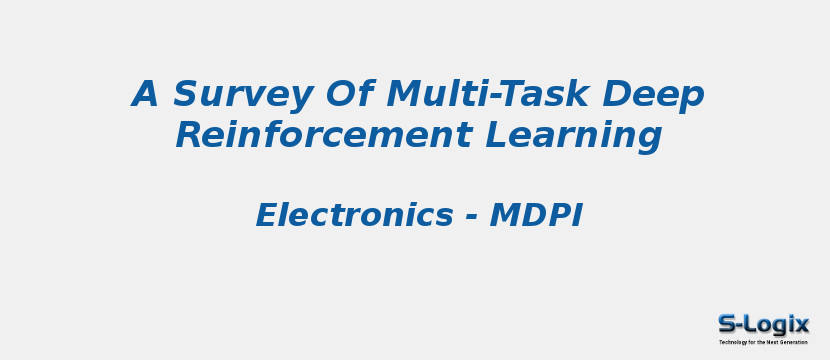Research Area: Machine Learning
Driven by the recent technological advancements within the field of artificial intelligence research, deep learning has emerged as a promising representation learning technique across all of the machine learning classes, especially within the reinforcement learning arena. This new direction has given rise to the evolution of a new technological domain named deep reinforcement learning, which combines the representational learning power of deep learning with existing reinforcement learning methods. Undoubtedly, the inception of deep reinforcement learning has played a vital role in optimizing the performance of reinforcement learning-based intelligent agents with model-free based approaches. Although these methods could improve the performance of agents to a greater extent, they were mainly limited to systems that adopted reinforcement learning algorithms focused on learning a single task. At the same moment, the aforementioned approach was found to be relatively data-inefficient, particularly when reinforcement learning agents needed to interact with more complex and rich data environments. This is primarily due to the limited applicability of deep reinforcement learning algorithms to many scenarios across related tasks from the same environment. The objective of this paper is to survey the research challenges associated with multi-tasking within the deep reinforcement arena and present the state-of-the-art approaches by comparing and contrasting recent solutions, namely DISTRAL (DIStill & TRAnsfer Learning), IMPALA(Importance Weighted Actor-Learner Architecture) and PopArt that aim to address core challenges such as scalability, distraction dilemma, partial observability, catastrophic forgetting and negative knowledge transfer.
Keywords:
Author(s) Name: Nelson Vithayathil Varghese and Qusay H. Mahmoud
Journal name: Electronics
Conferrence name:
Publisher name: MDPI
DOI: 10.3390/electronics9091363
Volume Information: Volume 9 Issue 9
Paper Link: https://www.mdpi.com/2079-9292/9/9/1363
